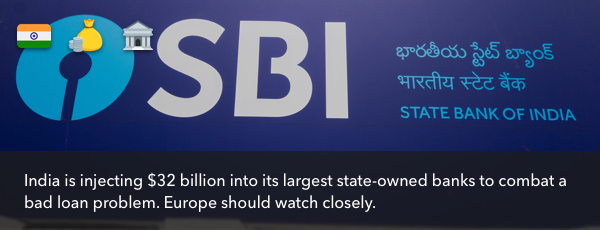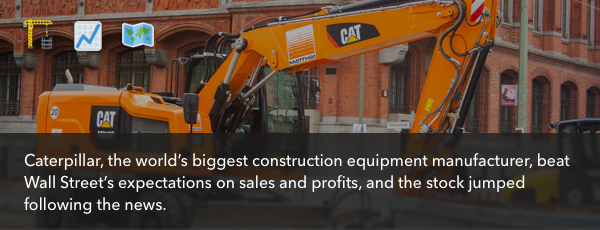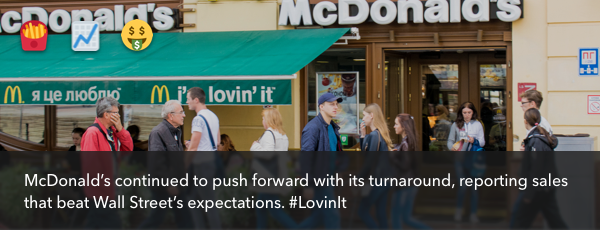
Image source:
What's going on?
India’s finance ministry said on Tuesday that it will be pumping tens of billions of dollars into its biggest state-owned banks. Emerging market investors: check your portfolios. Other countries with bad loans: watch closely.
What does this mean?
In recent years, India�s state-owned banks (which account for 70% of loans) have given out a large amount of loans that won�t be paid back � these so-called �non-performing loans� now make up a whopping 13.7% of all loans made by state-owned banks in India. This slowed down loan growth at these banks because they needed to use the money they have to cover their losses (rather than issue more loans).
Now, the government will inject $32 billion into these state-owned banks � that�s 1.3% of the economy! The idea is that this will cover losses from the bad loans, giving the banks more flexibility to increase lending and thus support the economy.
Why should I care?
For markets: Emerging market investors may have seen an impact on their portfolios.
As Asia has some of the largest economies in the world, India being one of them, investments that include shares in Indian banks could have been significantly impacted. The largest state-owned banks saw enormous gains of between 25-40% on Wednesday, while some big private sector banks saw declines of around 4%.
The bigger picture: India isn�t the only country with a bad loan problem.
India�s non-performing loans accounted for 9.6% of outstanding loans (as of March this year). But there are many countries with figures higher than this, especially in Europe, including Italy, Ireland and Portugal. The European Union (EU) has said the problem should be �urgently addressed�, which means EU countries may well propose similar steps � as the Spanish government did in 2012 and Italy has done recently. While pumping money into banks could help economies if they invest and lend the money, it risks saddling governments with more debt and reducing the incentive of banks to lend prudently (what economists call �moral hazard�).
Originally posted as part of the Finimize daily email.
The top 2 financial news stories in 3 minutes. Join over one million Finimizers





